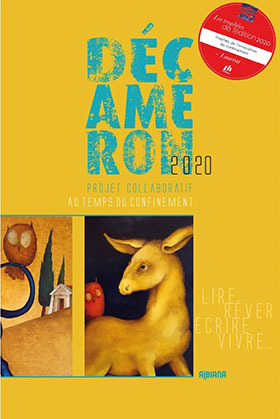- Mille et une nuits
- 2 likes
- 1412 views

Robert Waterhouse propose de découvrir (en anglais) l’œuvre et un mémento de l’artiste hongrois Jean-Georges Simon.
Jean-Georges Simon

Lecture notes, Worksop Art Club, 1954
Notes for an illustrated lecture entitled “Different tendencies in contemporary art, mainly 20th century, African etc arts. Influence of primitive expression on ‘modern’ artists”
Rouault, Picasso, Ben Nicholson, Henry Moore, Sickert, Signac, M Smith, Stanley Spencer, Utrillo, (Paul Nash?), Chagall, Van Gogh
Symbolic signs – music, painting, architecture, dance
Rhythm
Forms – all forms, even straight lines, to be found on the human body
Freedom of expression
Observation and realisation
Transfer, digest
Understanding
Loving
Being enthusiastic
Infatuated
Identify yourself with creating or reproduction
Photography + influence on fine arts
Lens and eyes
Speed: tempo in music, speeds in painting
Quick observation and perception
Essence: the essential, the soul of subject
Plato: line, curves, point beautiful in themselves
Tolerance in criticism
Individualism
Influence
Deep feelings, letting yourself go as an artist
Creation and reproduction
Composition and performance
Music – a composer-performer (painting, sculpting?)
Dissection of forms and human body
Variations
Analysis and construction: logic
Intellect, mind
Emotion, romanticism
Jean-Georges Simon (1894-1968) was a Hungarian artist who settled in London in 1939, having left Budapest in 1920 and lived meantime in Berne, Rapallo, Paris, Bruges and Brussels. He and his British wife Pat made their home in Harrogate, Yorkshire, from 1943. Simon’s post-impressionism was cherished by private collectors, but apart from a 1945 exhibition at the Redfern Gallery he enjoyed little public recognition. The lecture notes amount to his own credo.
Pour lire un autres texte proposé par Robert Waterhouse :
Robert Waterhouse (texte de George Mayer-Marton), Growing old
Entamez un dialogue : écrivez-lui à notre adresse decameron2020@albiana.fr, nous lui transmettrons votre message !


.JPG)

















